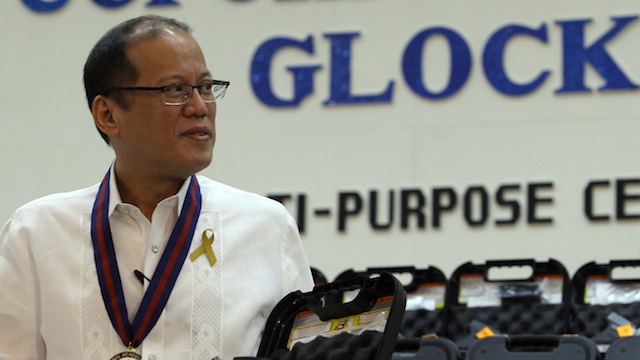SUMMARY
This is AI generated summarization, which may have errors. For context, always refer to the full article.

MANILA, Philippines – Filipinos will see President Benigno Aquino III’s legacy of less corruption in the government when he leaves office in 2016.
Malacañang Palace expressed this belief a day after the release of a report by Berlin-based Transparency International, first reported by Rappler, that showed corruption in the Philippines decreased over the last two years.
Presidential Spokesperson Edwin Lacierda on Tuesday, July 10, spoke with confidence, citing the rise in Filipinos who believe corruption in the country has decreased. He said, from only 6% of respondents believing corruption decreased in 2010, 35% of those surveyed in 2013 now share that belief.
“The legacy will be shown to you. After 6 years, you will be the judge of the legacy. We will show you,” he said.
“I think one of the things that you could say is that the attitude of the people towards government has changed dramatically. That’s one thing that you will see. And for other legacies of this government, I think, rather than for us to crow about it, I think the people will be in a better position to say it.”
The decrease in corruption is one of the findings listed in the group’s Global Corruption Barometer 2013, which Transparency International calls the biggest survey tracking worldwide public opinion on corruption.
While Lacierda said the government still recognized “there are still some levels of corruption,” he emphasized that the recognition of the administration’s “consistent fight against corruption” is there.
He gave assurances the government would not let down.
“Those who were surveyed, at the very least, recognized that there have been an increase in the recognition that corruption has decreased under this administration and we continue to fight against corruption. This is an ongoing process and it will continue to the very last day in our administration,” he said.
Defending the PNP
The report also showed that Filipinos perceive the police force as the most corrupt among 12 institutions, which reflected the same findings in the 2010/2011 survey.
The Philippine National Police (PNP) received a score of 4, on a scale of 1 to 5, with 5 being extremely corrupt.
The other institutions most seen to be corrupt were public officials/civil servants, political parties, parliament/legislature, and the judiciary, in that order.
Lacierda acknowledged these institutions will have to “make some improvements,” but also argued that “sometimes, the frontliners are the most visible.” He said the report should be used as instructive by the government.
Lacierda also defended the PNP, despite it topping the list of perceived most corrupt. The government has worked toward cleaning up the image and modernizing the police force.
“I know for a fact that the PNP has done a lot of reforms, and they continue to do a lot of reforms, and I’m sure that General [Alan] Purisima has continued all these reforms and will push for greater reforms in the police,” he said. – Rappler.com
Add a comment
How does this make you feel?
There are no comments yet. Add your comment to start the conversation.